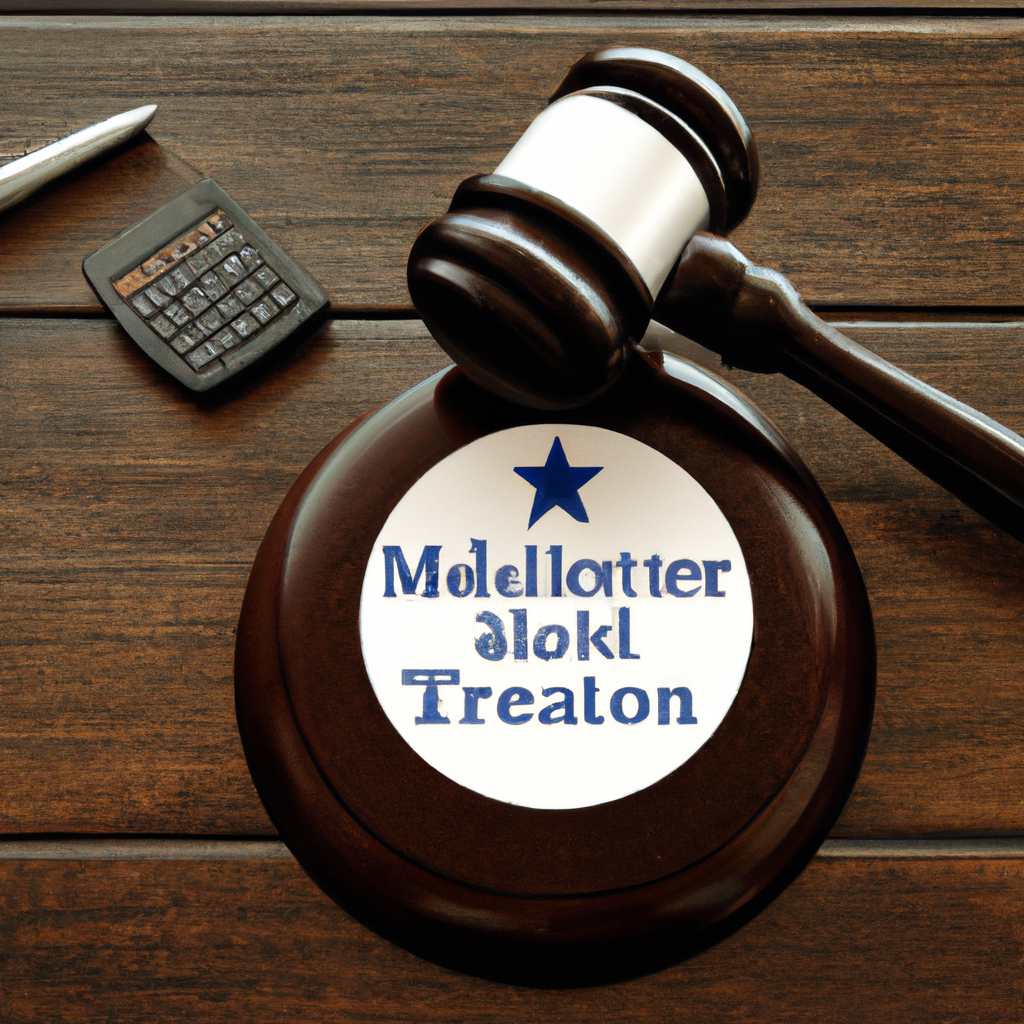Are you interested in pursuing a career as a certified mediator in Texas? If so, you may be wondering about the steps involved in achieving this prestigious certification. This article provides you with a comprehensive overview of the process, outlining the educational requirements, training programs, and certification exams you will need to successfully navigate in order to become a certified mediator in the state of Texas. So, if you are ready to embark on this rewarding and fulfilling journey, read on to discover the path to becoming a certified mediator in Texas.

This image is property of pixabay.com.
Requirements for Certification
Education
To become a certified mediator in Texas, one of the first requirements is to have a solid educational background. While there is no specific degree required to become a mediator, having a higher education degree, such as a bachelor’s or master’s degree, can provide a strong foundation in communication, conflict resolution, and negotiation skills. It is also beneficial to have coursework or training in areas such as psychology, sociology, law, or any other related field that can deepen your understanding of the mediation process.
Training
In addition to education, training is a critical component of becoming a certified mediator. The Texas Mediator Credentialing Association (TMCA) requires a minimum of 40 hours of basic mediation training from an approved training provider. This training should cover various aspects of mediation, including the role of the mediator, effective communication techniques, conflict resolution strategies, and the ethics involved in mediation. It is essential to choose a reputable training program that meets the TMCA’s standards to ensure that you receive quality education and practical skills.
Experience
While not always a mandatory requirement, having practical experience in mediation can greatly enhance your chances of becoming a certified mediator. Gaining hands-on experience in mediating cases, whether through internships, volunteer work, or apprenticeships, allows you to refine your skills, build confidence, and demonstrate your competence to potential certification bodies. Some organizations or jurisdictions may have specific requirements regarding the number of hours or cases you need to mediate before seeking certification, so it is crucial to familiarize yourself with those guidelines and gain relevant experience accordingly.
Application Process
Completing the Application
Once you have met the educational, training, and experience requirements, you can proceed with the application process for certification. The first step is to complete the application form, which can typically be found on the website of the certification body you are applying to. The form will require you to provide personal information, details about your education and training, and any relevant experience you have in mediation. It is important to fill out the form accurately and completely, ensuring that you include all the necessary information to avoid delays or rejection of your application.
Providing Required Documents
Along with the application form, you will be required to submit certain documents to support your application. These may include transcripts from your educational institution, training certificates, proof of mediation experience, and any other documentation that verifies your qualifications. Make sure to gather all the required documents in advance and have them organized and ready for submission to streamline the application process.
Submitting the Application Fee
To finalize your application, you will need to pay the required application fee. The fee amount may vary depending on the certification body and the level of certification you are applying for. It is important to carefully review the payment instructions provided and ensure that your payment is made within the designated timeframe. Failure to submit the application fee may result in delays or cancellation of your application, so it is crucial to fulfill this requirement promptly.

This image is property of pixabay.com.
Examination
Overview
As part of the certification process, aspiring mediators in Texas are typically required to pass a comprehensive examination. The examination aims to assess your knowledge, skills, and understanding of the mediation process, ethical standards, and best practices. The specific format and content of the examination may vary depending on the certification body, but it often includes multiple-choice questions, scenario-based assessments, and essay questions. It is essential to thoroughly study and prepare for the examination to ensure your success.
Texas Mediator Credentialing Association (TMCA) Exam
The TMCA exam is one commonly recognized examination for mediator certification in Texas. The exam covers various topics, including the Texas alternative dispute resolution statutes, the role of a mediator, ethical considerations, interpersonal communication skills, negotiation techniques, and academic theories related to mediation. The TMCA provides study guides and resources to help applicants prepare for the exam effectively. It is advisable to dedicate sufficient time to studying and revising the necessary material to increase your chances of passing the exam.
Continuing Education
Overview
Even after achieving certification as a mediator, it is important to engage in continuous professional development to stay updated with the latest trends, practices, and legal requirements in the field of mediation. Continuing education helps mediators refine their skills, expand their knowledge, and maintain their professional competence. It is also a requirement for maintaining certification and preserving the credibility and integrity of the mediation profession.
Continuing Education Requirements
Certified mediators in Texas are typically required to fulfill continuing education requirements to keep their certification valid. The specific number of hours and the topics covered may vary depending on the certification body and the level of certification. It is essential to familiarize yourself with the continuing education guidelines set forth by the certification body and ensure that you complete the required hours within the designated timeframe. Engaging in relevant workshops, seminars, conferences, and online courses can provide valuable opportunities to further enhance your mediation skills and knowledge.

This image is property of pixabay.com.
Code of Ethics
Importance of Ethics
Ethics play a vital role in the practice of mediation. As a mediator, you have the responsibility to facilitate fair and impartial processes, ensure confidentiality, and maintain the highest ethical standards. Adhering to a code of ethics is essential for establishing trust, promoting professionalism, and upholding the integrity of the mediation profession. Ethical behavior helps protect the rights and interests of all parties involved, fosters open communication, and promotes mutually beneficial resolutions.
Code of Ethics for Mediators in Texas
In Texas, mediators are expected to adhere to the Texas Mediator Credentialing Association’s Code of Ethics. The code sets forth guidelines and standards that mediators must follow to maintain their certification. Some key principles emphasized in the code include maintaining neutrality, treating all parties with respect and dignity, ensuring confidentiality, avoiding conflicts of interest, and promoting informed decision-making. It is important for mediators to thoroughly familiarize themselves with the code and actively incorporate its principles into their practice.
Professional Organizations
Benefits of Joining
Joining professional organizations can be incredibly beneficial for certified mediators. These organizations provide a platform for networking, learning, and staying updated with industry trends and developments. They often offer access to valuable resources, educational opportunities, conferences, and workshops, which can enhance your skills and knowledge. Additionally, professional organizations advocate for the profession, contribute to the development of ethical standards, and provide opportunities for professional recognition and advancement.
Texas Association of Mediators (TAM)
The Texas Association of Mediators (TAM) is a prominent professional organization for mediators in Texas. TAM aims to promote excellence in mediation practice, provide educational opportunities, and foster collaboration and networking among mediators. By joining TAM, mediators can access a wide range of benefits, including professional development resources, mentorship programs, exclusive networking events, and information on legislative updates that impact the field of mediation in Texas.
Texas Mediator Credentialing Association (TMCA)
The Texas Mediator Credentialing Association (TMCA) is another significant professional organization for mediators in Texas. TMCA focuses on the certification and accreditation of mediators and upholding the highest ethical standards in the profession. By becoming a member of TMCA, mediators can showcase their commitment to professional excellence, access valuable continuing education opportunities, and join a community of like-minded professionals dedicated to mediation excellence.

Networking and Mentoring Opportunities
Importance of Networking
Networking is a crucial aspect of building a successful mediation career. Engaging in networking activities allows mediators to connect with colleagues, share experiences, and exchange knowledge. It provides opportunities to collaborate on cases, gain valuable insights, and establish professional relationships that can lead to referrals and career advancement. Networking can occur through attending conferences, joining professional organizations, participating in workshops, and engaging in online communities dedicated to mediation.
Finding Mentors
Having a mentor can significantly benefit aspiring mediators. A mentor can provide guidance, offer insights from their own experiences, and help you navigate challenges or difficult situations. Mentors can provide valuable feedback on your skills and help you develop and refine your mediation approach. To find a mentor, consider reaching out to experienced mediators through professional organizations, attending networking events, or connecting with mediators in your local community. Be proactive in seeking mentorship opportunities and be open to learning from more experienced professionals.
Types of Mediation Specializations
Family Mediation
Family mediation focuses on helping families navigate and resolve conflicts related to various family matters, such as divorce, child custody, parenting plans, and division of assets. Family mediators facilitate communication between family members, assist in reaching agreements that best meet the needs of all parties involved, and provide a neutral and safe environment for productive discussions. Specializing in family mediation requires specific training and knowledge of family law and dynamics.
Civil Mediation
Civil mediation involves mediating disputes that arise outside the family context, such as contract disagreements, property disputes, or personal injury claims. Civil mediators help parties involved in the dispute understand each other’s perspectives, explore potential resolutions, and work towards mutually acceptable outcomes. This specialization requires a solid understanding of legal principles and procedures, as well as effective communication and negotiation skills.
Business Mediation
Business mediation focuses on resolving conflicts that arise within the business or corporate context. It can involve disputes between business partners, contractual disagreements, employment issues, or conflicts with stakeholders. Business mediators assist in facilitating dialogue, identifying common ground, and finding creative solutions that meet the interests of all parties involved. Specializing in business mediation requires knowledge of business law, negotiation techniques, and an understanding of corporate dynamics.
Workplace Mediation
Workplace mediation deals with conflicts that arise within the workplace environment, such as conflicts between employees, disputes between management and employees, or allegations of harassment. Workplace mediators act as neutral facilitators, guiding the parties towards constructive conversations and assisting in finding mutually acceptable solutions. This specialization often requires an understanding of employment laws, conflict resolution in a professional setting, and effective communication strategies.

Scope of Practice
Rights and Responsibilities
As a certified mediator in Texas, you have certain rights and responsibilities that come with your professional role. It is important to be aware of these to ensure that you practice within the appropriate scope and uphold professional ethics. Mediators have the right to establish and maintain their impartiality, which involves maintaining a neutral stance throughout the mediation process. They also have the right to manage the process and set appropriate boundaries for the discussion. Additionally, mediators have the right to terminate a mediation if they believe that it is not progressing in a productive or ethical manner.
Mediators also have responsibilities towards the parties involved in mediation. These responsibilities include ensuring confidentiality, treating all parties with respect and dignity, promoting informed decision-making, and avoiding conflicts of interest. Mediators must maintain fairness and impartiality, refrain from providing legal or professional advice, and adhere to the ethical standards set forth by the certification body.
Limitations
It is crucial for mediators to understand and acknowledge their limitations. Mediators are facilitators of discussions and resolutions, but they are not decision-makers or arbitrators. They do not have the authority to impose solutions or make binding decisions. Mediators must maintain neutrality and avoid advocating for any party’s interests. It is also important to recognize when certain cases or conflicts may fall outside their area of expertise or require specialized legal or professional advice. In such cases, mediators should refer the parties to appropriate professionals or resources to ensure that they receive the necessary support and guidance.
Career Outlook
Demand for Certified Mediators
The demand for certified mediators in Texas is expected to grow in the coming years. Mediation offers an alternative dispute resolution method that is often more cost-effective and efficient compared to traditional litigation. As individuals and organizations increasingly recognize the benefits of mediation, there is a growing need for qualified and certified mediators who can provide neutral and effective facilitation. Mediators with specialized knowledge in areas such as family, civil, business, or workplace mediation may have even greater job opportunities and demand.
Median Salary
The median salary for certified mediators in Texas can vary depending on factors such as experience, specialization, geographic location, and the type of cases handled. According to the Bureau of Labor Statistics, the median annual wage for arbitrators, mediators, and conciliators as of May 2020 was $65,120. However, it is important to note that salary ranges can vary significantly and depend on factors mentioned previously. As mediators gain experience and establish their reputation in the field, it is not uncommon for their earning potential to increase.
Job Opportunities
Certified mediators in Texas can find job opportunities in various settings. These may include government agencies, nonprofit organizations, private law firms, mediation centers, corporations, and educational institutions. Some mediators may choose to establish their own private practice, offering their services as independent contractors. Job opportunities may also be influenced by the specific mediation specialization, with family mediators often finding opportunities in family courts, while business or civil mediators may work with law firms or corporate clients.
In conclusion, becoming a certified mediator in Texas requires meeting specific educational, training, and experience requirements. The application process involves completing an application form, providing required documents, and submitting the application fee. Successful completion of a comprehensive examination and ongoing participation in continuing education is necessary to maintain certification. Adhering to a code of ethics, joining professional organizations, networking, finding mentors, and specializing in specific mediation areas can further enhance a mediator’s career. The demand for certified mediators is growing, with competitive salaries and diverse job opportunities available to those who pursue this rewarding profession in Texas.
